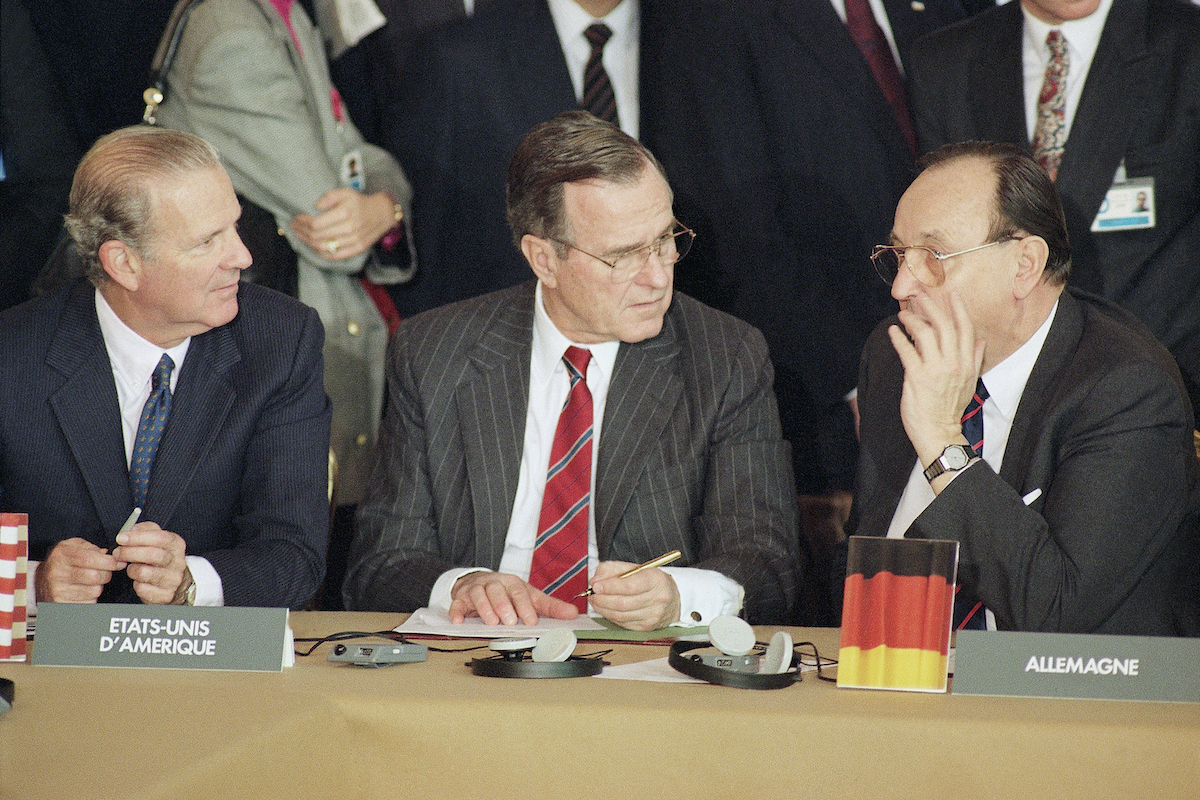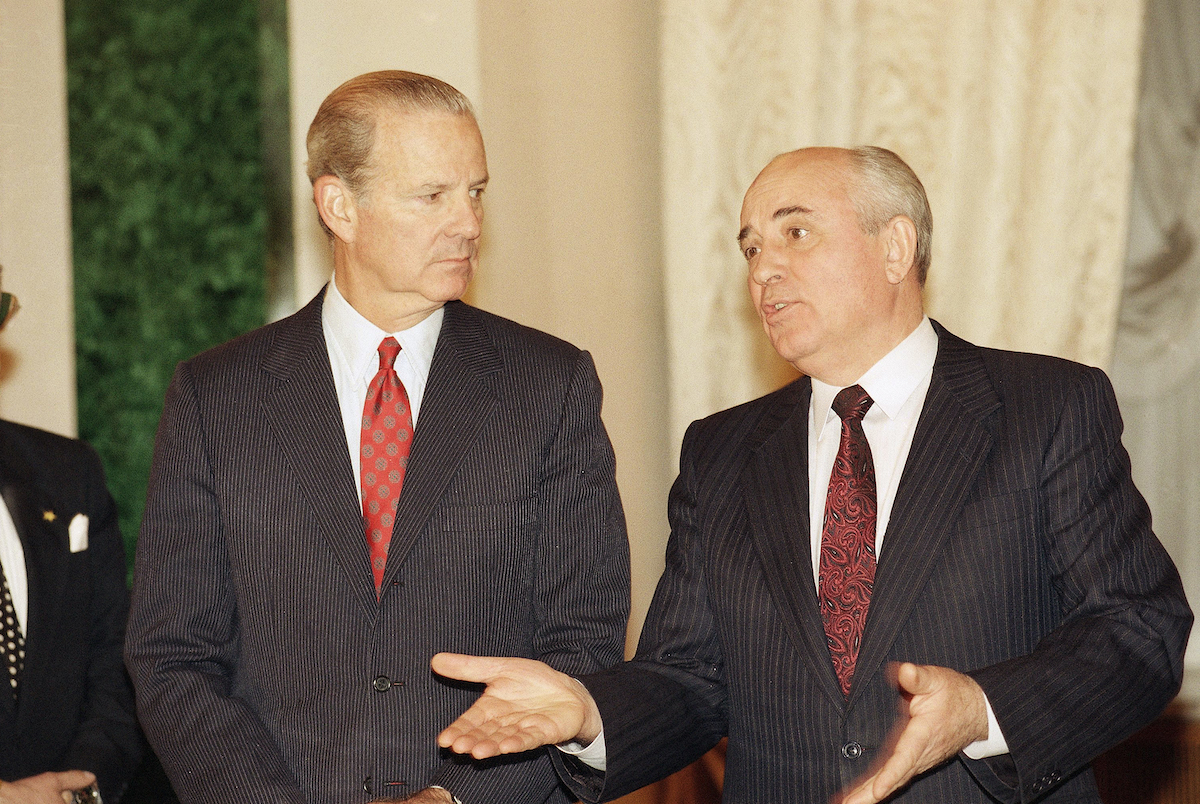
"NATO (under direction from the United States) is violating previous agreements and expanding eastward," Owens said in the Feb. 22 tweet, which directed her more than 3 million followers to remarks from Russian President Vladimir Putin that she said showed "what’s actually going on."
Owens’ comment echoed a grievance claimed by Putin and other Russian leaders regarding the West’s negotiations with the Soviet Union after the Cold War.
The subject of the grievance is whether the U.S. and its Western allies promised the Soviet Union during negotiations over the reunification of Germany that they would not allow NATO to expand its membership east of the Cold War border.
The question has fueled decades of debate and disagreement over what was said around those negotiations, what was meant by it all, and whether Soviet President Mikhail Gorbachev and other leaders received certain assurances regarding NATO’s expansion beyond East Germany.
But even historians who argue that the Soviets were led to believe that NATO would not expand farther to the east told PolitiFact Owens’ statement is more wrong than right. No binding, legal agreement ever codified the terms that Putin’s camp — and Owens — now say were violated.
"Such an agreement was never made," NATO says in a fact page on its website, one of multiple pages that addresses the Russian allegations. "NATO’s door has been open to new members since it was founded in 1949 — and that has never changed."
Negotiating German reunificationAfter the fall of the Berlin Wall in 1989, a divided Germany and the four powers that had occupied it since World War II were discussing whether the country should be reunified.
The treaty they signed in 1990 extended NATO into East Germany, which had been zoned to the Soviet Union. To appease the Soviets, it also granted the territory a "special military status" that ruled out the stationing of foreign NATO forces there.
The agreement said nothing about NATO’s ability to expand farther east, a process that began with the admission of Poland, the Czech Republic and Hungary as members in 1999. Subsequent agreements, like the NATO-Russia Founding Act in 1997, also made no mention of a prohibition on eastward expansion.
"I know of no agreement signed by the United States, Germany, Britain, France or any NATO member that foreswore NATO enlargement," said the Brookings Institution’s Steven Pifer, who was the deputy director of the State Department’s Soviet desk at the time the 1990 deal was struck.
"This claim (from Owens) is factually incorrect," added John Lough, an associate fellow at Chatham House, a London-based think tank, who served from 1995 to 1998 as NATO’s first representative based in Moscow. "NATO never made a commitment to Russia not to enlarge."
The source of controversy, however, is centered around statements made during the negotiations by Western leaders — particularly James Baker, the U.S. secretary of state, and German Foreign Minister Hans Dietrich Genscher.

U.S. President George H. Bush signs an arms-reduction treaty as Secretary of State James Baker, left, talks with Germany's Hans Dietrich Genscher in Paris on Nov. 19, 1990. (AP)
"Not shift 1 inch eastward"One key statement came during a Feb. 9, 1990, meeting between Baker and Gorbachev.
After explaining why the U.S. wanted the reunited Germany to stay within the framework of NATO, Baker told Gorbachev that "if we maintain a presence in a Germany that is a part of NATO, there would be no extension of NATO's jurisdiction for forces of NATO 1 inch to the east."
"I put the following question to (Gorbachev)," Baker recounted in a letter to German Chancellor Helmut Kohl. "‘Would you prefer to see a united Germany outside of NATO, independent and with no U.S. forces, or would you prefer a unified Germany to be tied to NATO, with assurances that NATO’s jurisdiction would not shift 1 inch eastward from its present position?’"

U.S. Secretary of State James Baker, left, looks on while Soviet President Mikhail Gorbachev gestures during their meeting at the Kremlin, on Dec. 16, 1991 in Moscow. (AP)
Those comments, along with similar remarks from Baker’s European allies, like Genscher and Kohl, were part of what researchers at George Washington University’s National Security Archive called a "cascade of assurances" offered to the Soviets.
But Baker and other officials involved in the events have denied that the conversation ever turned on expanding NATO to other countries.